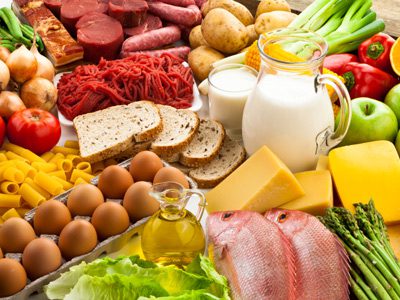
- A nutritious diet helps minimize the risk of stroke, which is one of the primary causes of disability.
- The link between fat categories and stroke risk is less clear.
- Longitudinal research demonstrated that vegetable fat, polyunsaturated fat, and vegetable oil consumption reduced the risk of stroke.
- Those who ate more non-dairy animal fat, red meat, and processed red meat had a greater risk of stroke.
Stroke is the sixth greatest cause of death in the United States, according to the Center for Disease Control and Prevention (CDC).
Although stroke mortality has decreased over the previous four decades, it remains a primary cause of long-term physical impairment and brain damage. This emphasizes stroke prevention.
A healthy lifestyle can help prevent heart disease and stroke. For example, an earlier research says that living a healthy lifestyle can cut stroke risk by 80%. Authenticity. The study looked at good eating habits, exercise, avoiding smoking, moderate alcohol intake, and keeping a healthy weight.
Although a balanced diet is an important component of preventing stroke and other cardiovascular disorders, only 22% of Americans follow the American Heart Association’s (AHA) dietary recommendations.
Consuming a high fiber diet rich in vegetables, fruits, nuts, legumes, whole grains, poultry, and fish, while limiting carbs, salt, and red meat, is widely recommended for lowering the risk of stroke. For a long time, stroke preventive recommendations emphasized a reduction in fat consumption.
Researchers have recently discovered that particular lipids and overall fat consumption might impact the risk of stroke.
Several studies have found no link between dietary fat consumption and stroke risk, including polyunsaturated and saturated fats. Also, few studies have looked at how different types of fat, such dairy and beef, affect the risk of stroke.
The Harvard T.H. Chan School of Public Health recently researched the risk of stroke associated with various fat types and sources.
A postdoctoral researcher at Harvard University, Dr. Fenglei Wang said:
“We found that higher intake of vegetable fat and polyunsaturated fat was associated with lower stroke risk, while higher intake of non-dairy animal fat was associated with higher stroke risk. Our findings indicate the importance of considering the fat sources when examining the association between fat intake and stroke risk.”
“To our knowledge, this is the first study to look at total fat, different kinds of fat (saturated fat, monounsaturated fat, polyunsaturated fat, or trans fat), and fat from diverse dietary sources (vegetable, dairy, or non-dairy animal foods) in relation to stroke risk,” Dr. Wang noted.
Dr. Ka Kahe, a Columbia University professor who was not engaged in the study, talked to MNT as well. “The link between fat consumption and stroke risk remains debatable,” Dr. Kahe stated. This large-scale study adds to our understanding of this complicated topic by demonstrating that fat kinds and sources matter.”
The findings will be presented at the American Heart Association’s Scientific SessionsTrusted Source conference.
Types of fat in the diet and the risk of stroke
The Nurses’ Health Investigation (NHS) and the Health Professionals Follow-up Study (HPFS) provided longitudinal data for this study .
The research examined medical and lifestyle data from 73,867 female nurses who were recruited in the NHS between 1984 and 2016. Similarly, data from the HPFS included 43,269 male healthcare workers who provided comparable information between 1986 and 2016.
At the time of recruitment, none of the study participants had been diagnosed with cardiovascular disease or cancer. Overall, 63 percent of the participants were women, and 97 percent of the participants were white.
Using food frequency questionnaires, the researchers acquired information on fat intake, as well as the type and source of fat.
Food frequency questionnaires were given to individuals every four years, beginning in 1984 for NHS participants and 1986 for HPFS participants.
Based on participant self-reports, the researchers discovered that 6,189 persons suffered a stroke during the follow-up periods, which a doctor later verified.
The researchers first looked at the relationship between fat type and total stroke risk. They discovered that consuming more animal fat from non-dairy sources was linked to an increased risk of stroke. Participants who ate more vegetable fat or polyunsaturated fat, on the other hand, had a decreased risk of stroke.
The researchers next looked at the link between fat from various food sources and the risk of stroke. They discovered that eating red meat and processed red meat was linked to an increased risk of stroke, but eating vegetable oil was linked to a decreased risk.
Saturated fat consumption was not linked to an increased risk of stroke. “The relationships could change for saturated fat from vegetable, dairy, or non-dairy animal diets,” Dr. Wang cautioned. Finer classifications will help us better understand how different kinds and sources of fat are linked to illness risk in the future.”
The findings may not apply to all ethnic and racial groupings because the study participants were primarily white.






